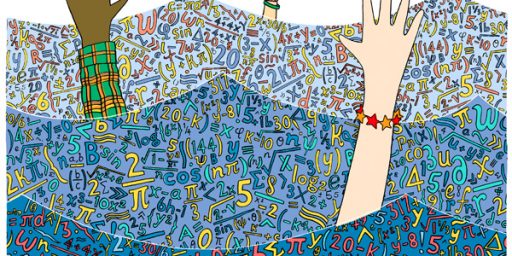Dying Languages – Cause for Concern?
An obsolete language dies every two weeks, a new study reports.
When every known speaker of the language Amurdag gets together, there’s still no one to talk to. Native Australian Charlie Mungulda is the only person alive known to speak that language, one of thousands around the world on the brink of extinction. From rural Australia to Siberia to Oklahoma, languages that embody the history and traditions of people are dying, researchers said Tuesday. While there are an estimated 7,000 languages spoken around the world today, one of them dies out about every two weeks, according to linguistic experts struggling to save at least some of them.
Five hotspots where languages are most endangered were listed Tuesday in a briefing by the Living Tongues Institute for Endangered Languages and the National Geographic Society. In addition to northern Australia, eastern Siberia and Oklahoma and the U.S. Southwest, many native languages are endangered in South America — Ecuador, Colombia, Peru, Brazil and Bolivia — as well as the area including British Columbia, and the states of Washington and Oregon.
Losing languages means losing knowledge, says K. David Harrison, an assistant professor of linguistics at Swarthmore College. “When we lose a language, we lose centuries of human thinking about time, seasons, sea creatures, reindeer, edible flowers, mathematics, landscapes, myths, music, the unknown and the everyday.”
That sure seems like a stretch. How much scientific knowledge will we really lose if Charlie Mungulda is unable to pass on Amurdag? Aren’t languages which are being lost almost by definition those of illiterate peoples? Do they really have a lot to teach us about mathematics and the space-time continuum?
Further, doesn’t the death of a language represent cultural assimilation? Presumably, the South American and Canadian tribes who are no longer speaking the ancient tongues of their forebears are now speaking Spanish, Portuguese, English, or French? Don’t they thereby gain some modicum of cultural knowledge by thus gaining access to the learnings of advanced societies? And why, because they now speak a more common language, would they forget what they used to know about reindeer and edible flowers?
Also, one would think with linguistic assimilation would come a breakdown in tribalism. The ability to communicate with neighboring peoples would presumably increase the ability to resolve misunderstandings and avoid bloodshed.






Language is a tool, and the inherent assumptions of language do mould our perceptions and thoughts a great deal.
The book Technopoly by Neil Postman has some interesting insights on this. FOr instance he quotes a japanese winner of the Nobel prize in either physics or chemistry who says that science should be done in English because the language itself is better suited to the task than Japanese. English is sometimes described as an aggressive language because every sentence consists of something doing something. Without a verb (explicit or implied) there is no sentence. That’s not true of all languages.
Now as native english speakers we don’t usually think about this. If we’re lucky enough to be polyglots we might be more aware of how communicating in a particular language exerts a strong influence on our thought patterns.
All of which is just a long way of saying that, yes, even illiterate speakers of a language may have insights based purely on their perception of the world as expressed by how they created their language.
Now, that having been said, I don’t personally find the disappearance of languages to be a terrible tragedy. Where possible it’d be good to record the details of the language so that they aren’t lost forever, but it’s not even close to the biggest problems on the table.
If you’re a geologist then losing a mountain range every two weeks is a catastrophe, or consider losing a species every two weeks for a biologist. Some things are irreplaceable. If we want to understand language then we need to have more data rather than less. It’s pretty simple, really.
In many cases, the vitality of a language is key to knowing the history of a people. What we gain through assimilation we may lose in understanding. That said, there’s an extremely fine line between â€preserving” one’s language and a xenophobic resistance to foreign influence on one’s culture. Moreover, if Professor Harrison is truly despairing of the loss of rare languages today, he must be absolutely depressed if he considers the tens (if not hundreds) of thousands of languages that have already come and gone.
Lets hope French dies quickly, as well. And Spanish–then those immigrants will be forced to speak American.
All I know is that, in the 24th Century, people with names like Jean Luc Picard speak with a British accent. FWIW.
Languages reflect different ways of thinking. Related languages are, well, related in their concepts. The more dissimilar a language to one’s own, the more dissimilar the thought processes (not the mechanics of thinking, but the content).
It is a shame to lose languages, but it’s an intellectual loss, not on the order of magnitude of losing a species, or even an individual life. It’s to be regretted, to be avoided if rationally and economically possible, but not worth preserving at any or all costs.
Languages do have lifespans. They’re born, grow up, live, and die. Some go utterly extinct; others live on through their close relations. Yet others spin off new and different generations.
At present, English is the language most vital in its expansion. That’s unlikely to be the case indefinitely, but there’s no stopping what is a natural process aided or augmented by contemporary technology, from TV and the Internet, to the simple fact of air travel.
Of course, it seems two obsolete languages are created every week too.
You think that’s weird? Wait til you meet a blond-haired blue-eyed native cantonese speaker. There are some areas that are so linked in our minds between culture and ethnicity that it is hard to break the association.
The Egyptians were one of the earliest literate societies, and we still lost the knowledge of their hieroglyhics. Along with that we lost not only our knowledge of that culture, but also of history and medicine that wasn’t rediscovered for centuries after.
They Egyptian society was not a literate one. It was a primarily oral society that had a few literate people in it. When the literate few didn’t pass on their knowledge, the knowledge died.
7000? Are we talking languages or dialects?
By my calculations, at the current rate, in the year 2300 English will be the only language left. Maybe that’s why Picard speaks English. Prehaps we should inport some new ones from other planets.
Even the alien races on star trek speak english. Maybe the galactic total of languages is running down until english triumphs.
Take that, anthropic principle!
We should try to save dying languages
Latin’s a dead language,
As dead as it can be.
It killed off all the Romans,
And now it’s killing me!
–Anonymous student of Latin